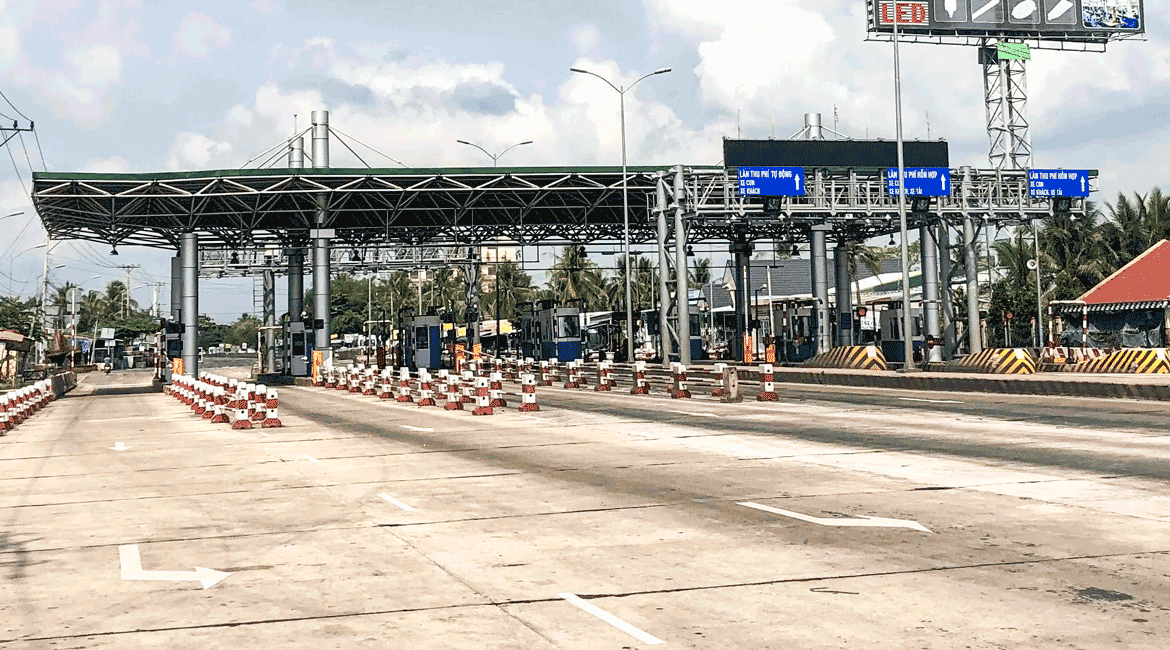
Wrong from the onset
The actual situation of current BOT projects has emerged with many abnormalities which were created at the very onset of the projects several years ago, and now considered a "blood clot" for banks and a mess for the Ministry of Transport.
The participants miscalculated from the very beginning when they said that they could carry out the project as planned and collect enough investment capital as well as expect profits. Therefore, when developing the plans, the participants were easy on the expenses, and spent a lot on other things, not just project investments. These could be termed as “lubrication fees” with percentages divided between the participants, causing the total capital investment to be pushed up higher than actual value.
In fact, investors could still have recovered all the capital and got profits as planned, meaning they could still repay bank loans, if the policies had not changed and people had not reacted harshly.
However, these risks were caused by the businesses themselves, not by objective factors. Because the businesses charged too high a fee at BOT stations, and the inconvenient placement of the BOT stations, people were left without any other options. This is a "coercion" and as a result people protested and BOT stations did not work as expected; got unsecured revenues; bad debts arose in banks; the risk reserve capital invested in BOT eventually disappeared; leading to the present tragic situation today.
It can be said that the calculation, planning and supervision of the parties in the BOT projects had problems from the very beginning. From planning, implementation to supervision and operations, they were so subjective that they did not consider other objective factors, such as people's opinions, assessments of independent international monitoring organizations, and the sharing of risks. It is worth mentioning that the policies of the State in these areas are quite weak.
State policies are meant to adjust to people’s interests in a harmonious and rational manner, ensuring for common development. When the policies are weak they are easily overcome by “special interest groups”, who can distort them to get maximum self-benefit.
The story of BOT projects has shown the failure of these policies. If policies are not strong enough, they create conditions for "interest groups" to intervene and steer loopholes in a way that benefits them only. Correcting the policies is easily said but very difficult to implement, especially when it could lead to many long-term consequences for the economy.
All projects need reviewing
There are many different opinions when it comes to resolving VETC issues. We have not mentioned specific solutions yet, but this is the time authorities need to review and re-evaluate all the implemented projects, as well as bad debts in banks with BOT investments.
This is a technical factor, not just a temporary solution such as debt reducing and debt rescheduling proposal. The review also needs to be expanded, from the initial planning stage to the cost of enterprises in BOT projects. Specifically, it is necessary to clearly determine whether the enterprises expenditures are accurate for project investment, or for "out-of-stream" spending such as "lubrication fees". After reviewing, assessing and gathering enough information, we can then come to the next stage of finding solutions.
For debts that enterprises borrowed from banks to invest in BOT projects, and after determining that they were used for the right purposes or invested rightly in the projects, we can decide the solutions based on each case. One solution is to renew the debts. This is also a way to share risks with concerned enterprises. However, for loans that were not used to invest in BOT projects but for other expenses, the enterprises themselves must be accountable and we cannot force the banks to resolve such concerns.
Finally we come to the consequences of the policies. The right, reasonable, open and transparent policies will be sufficient to balance, distribute and administer interests of society towards common interests and create motivation for socio-economic development. But when policy is "weak", it can lead to distortion and even manipulation, with unpredictable consequences.
The case of BOT projects is an expensive lesson for authorities in creating and operating policies. The Public Private Partnership (PPP) Law is being considered for approval, which may be the basis for "patching" policy gaps in recent years. But even when there is a law, a clear and transparent platform must still be considered a priority factor to ensure that the law is properly enforced.




















